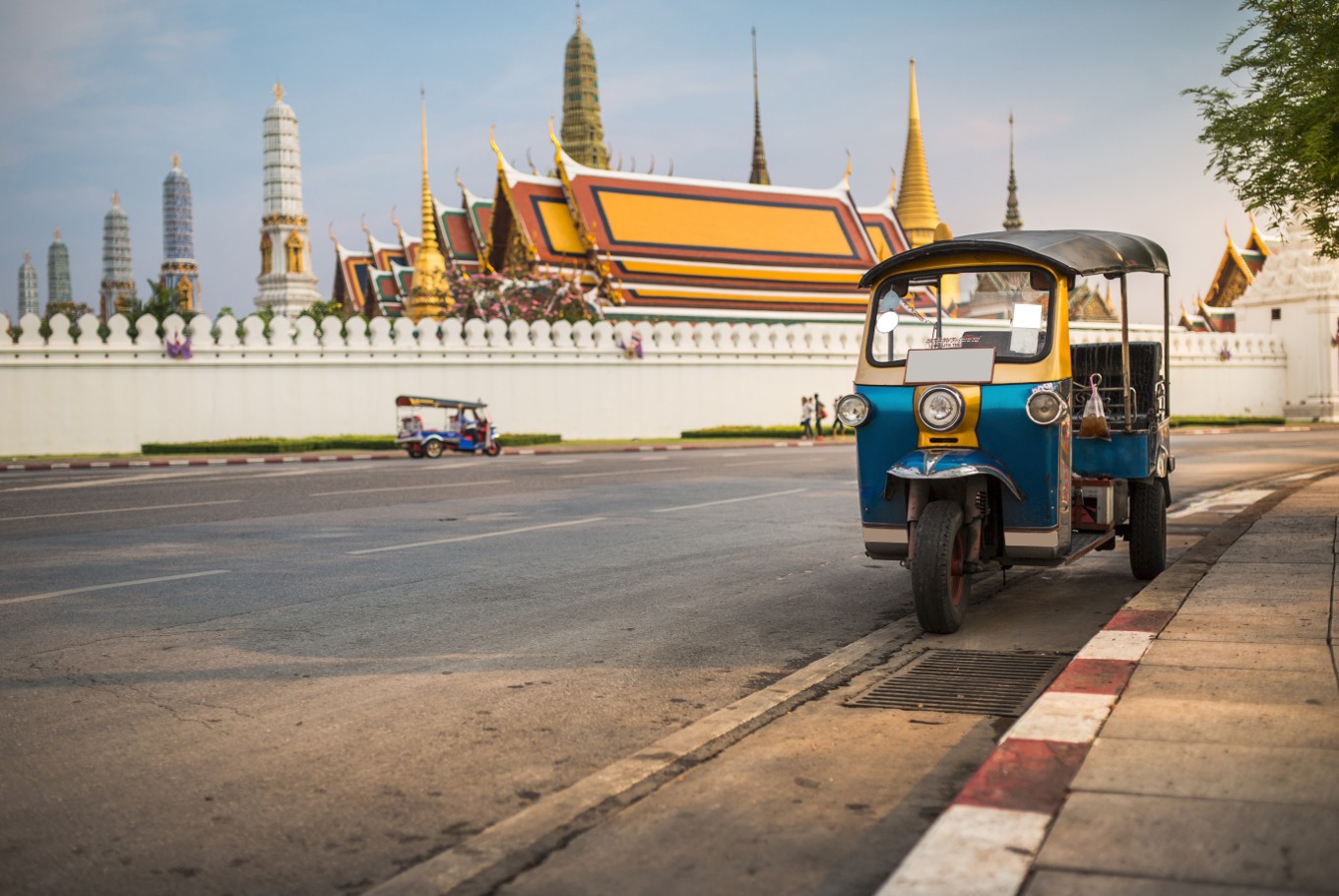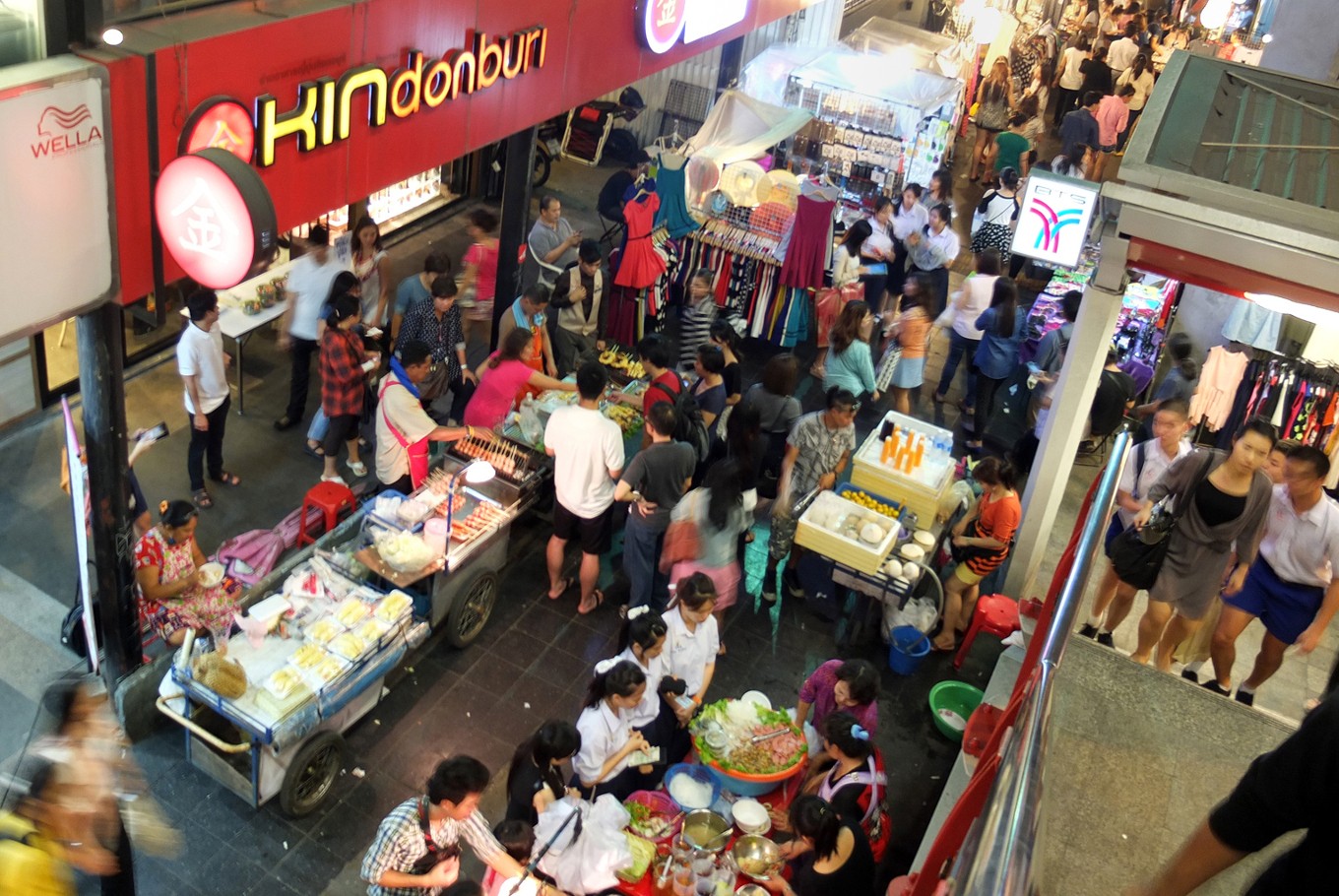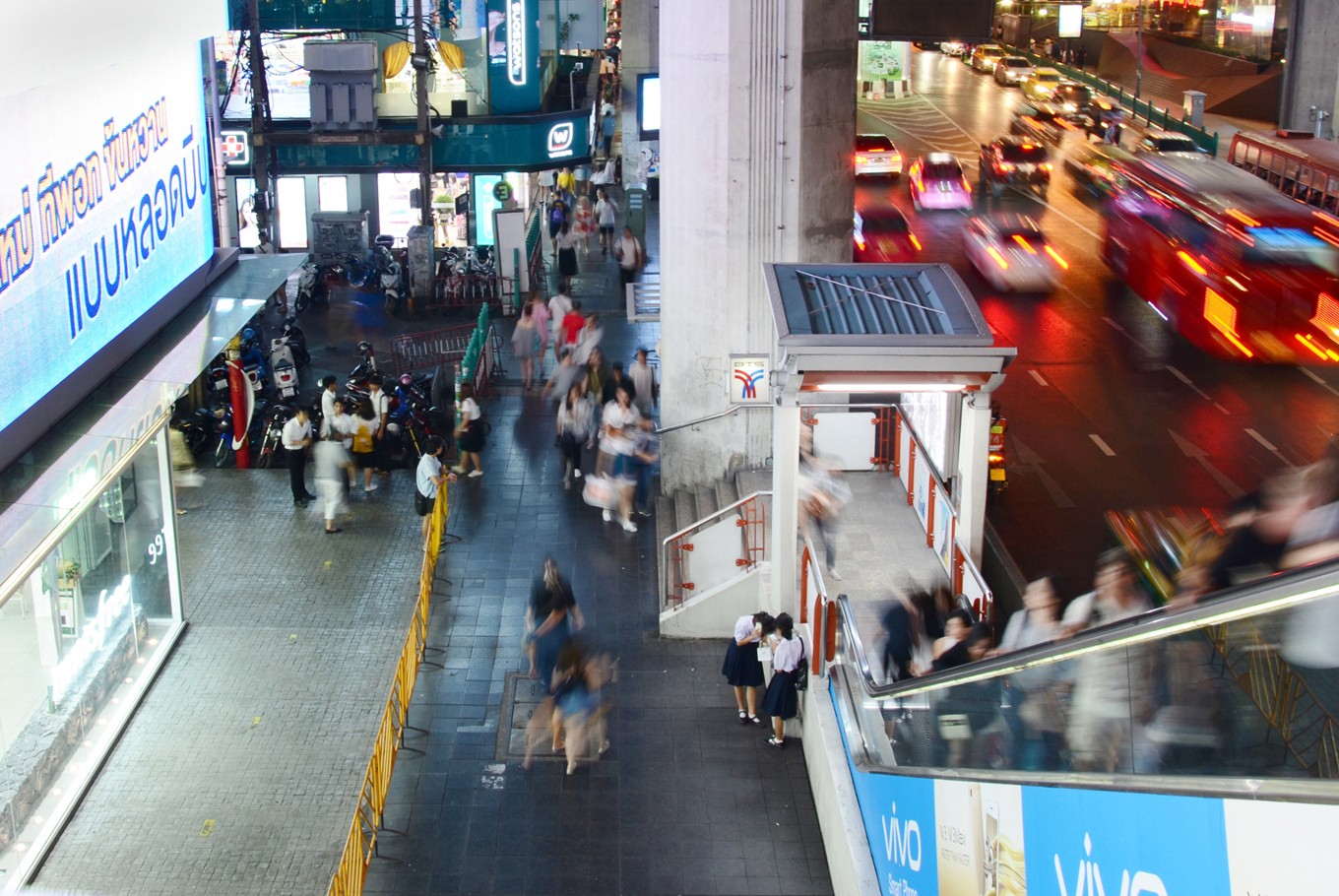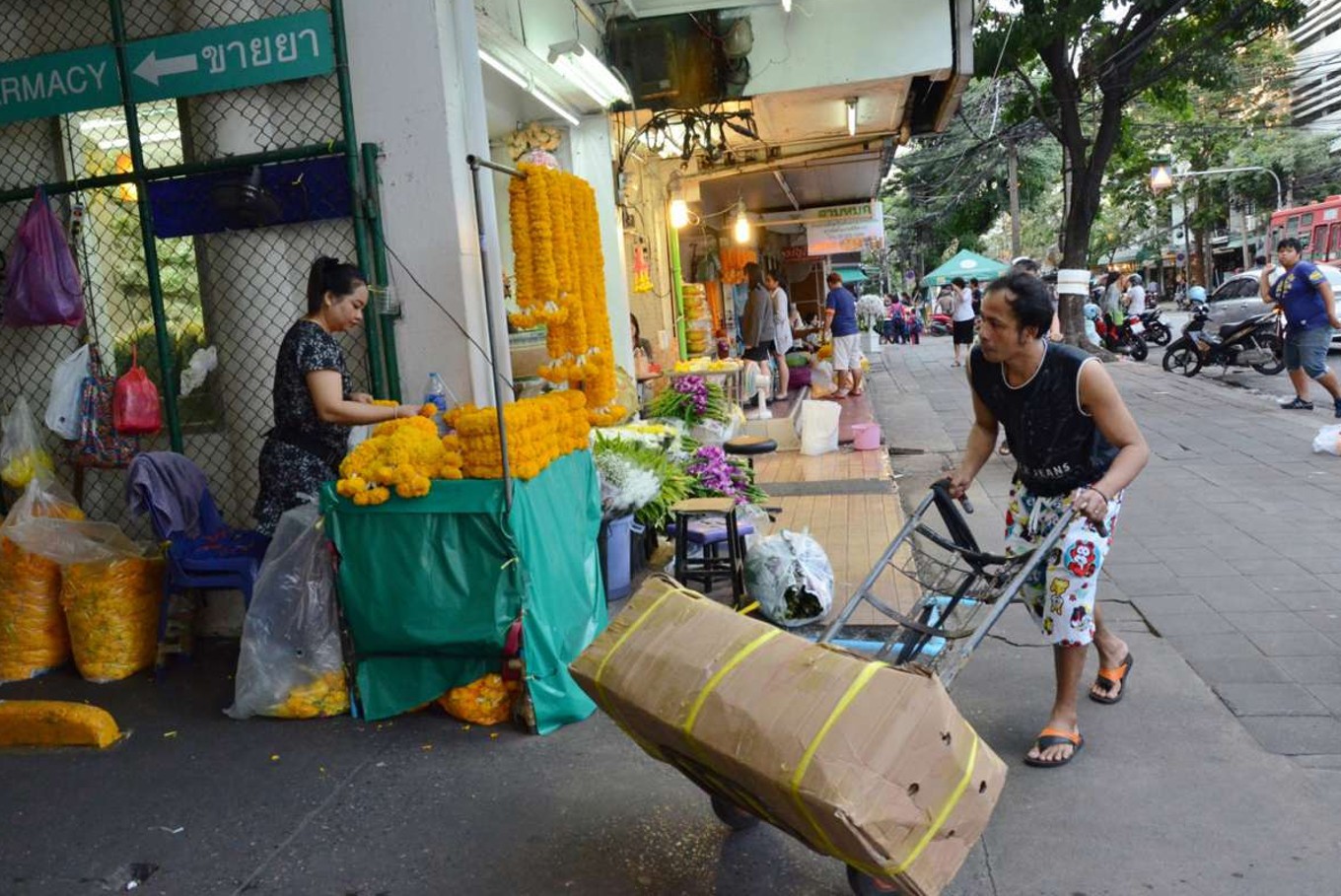Sweeping vendors off Bangkok streets
City officials say pavements are for public use but move may cost capital its vibrancy
Change Size
 One of the streets in Bangkok, Thailand. City officials, buttressed by a military government vowing to restore order in Thai society, have cleared out some of Bangkok's most famous nodes of street life. (Shutterstock/File)
One of the streets in Bangkok, Thailand. City officials, buttressed by a military government vowing to restore order in Thai society, have cleared out some of Bangkok's most famous nodes of street life. (Shutterstock/File)
T
he food carts are disappearing. So are the street-corner cobblers, sidewalk tailors and other vendors that make treading Bangkok's pavements both an adventure and a chore.
City officials, buttressed by a military government vowing to restore order in Thai society, have cleared out some of Bangkok's most famous nodes of street life.
They plan to expand these efforts in the coming months, raising fears that the vibrancy would be sucked out of the capital of some 10 million people.
At the heart of Bangkok's shopping district, the vendors' carts that reduced foot traffic to a crawl under Siam skytrain station have disappeared. Heavy, yellow barriers now line the wide, empty pavements in front of glitzy shopfronts, while enforcement officers keep a nightly vigil to deter hawkers from returning.

Near Chao Phraya River, where chrysanthemums and jasmine flowers piled on pavements used to perfume the streets at Pak Khlong market, shoppers now walk alongside deliverymen with little obstruction.
Meanwhile, long-time residents living behind the walls of the historic Mahakan Fort are locked in a battle of wills with the Bangkok Metropolitan Administration (BMA), which tore down 12 houses in the community last year.
To the city officials, their owners are squatters in the way of plans to erect a park around the monument. But conservationists are calling for the community and valuable traditional homes within the walls to be preserved.
"The pavement is for pedestrians, for the public," Dr Vallop Suwandee, the BMA's head adviser, tells The Straits Times. "The pavement is not for private use."
He concedes that the BMA's slow-moving efforts to clear public spaces of illegal occupants gathered pace only recently under the military administration, which was installed after a May 2014 coup and is expected to remain in power for at least a year more - pending the reintroduction of elections.
In the meantime, the BMA - whose governor is, under normal circumstances, elected - need not worry about upsetting potential voters.
Elsewhere, the military government has demolished resorts that have encroached on public forests, and also removed illegally built bars and restaurants from public beaches.
But Dr Vallop stresses that the Bangkok clean-up is not the junta's initiative. "It did not order the City Hall to clear the pavements."

(Read also: 2 weeks, 1 country and a world of wonders in Thailand)
Asked if it would cause Bangkok to lose its allure as a destination for tourists, he says: "We have to weigh the income from tourism against public inconvenience… Not all tourists like jammed pavements."
Observers accuse the BMA of looking after the interests of middle-class residents at the expense of the poor. It is on the streets, after all, where small-time hawkers make a living, and where quick meals can be had for 20 baht (80 Singapore cents) or 30 baht.
In the case of Khlong Thom market, a sprawling flea market near Bangkok's Chinatown which was reined in as well, it was also where some of the cheapest products could be found.
"Many Bangkok residents don't buy food or do other activities on the pavements any more," points out Dr Nattapong Punnoi, an urban planner at Chulalongkorn University. "Many of them use cars, and connect from their home to their office, or to the mall," he adds.
It is this group of people who are most supportive of the removal of vendors from the pavements.
Over at Mahakan Fort, where the land-use tussle spans several decades and involves compensation payments already paid out, residents are both wary and resentful.
"Poor people live here. Those who have money have moved away," says 70-year-old Somjai Kanjana, who has been living there all her life.

The effort to clear public spaces, she adds, is "good for people who have a choice, like those in the middle class".
The BMA says that it has tried to find alternative business venues for low-income vendors.
Property owners tell The Straits Times they are waiting for larger-scale redevelopment plans before sprucing up their own premises. But longer-term plans have not been forthcoming.
At Saphan Lek, a warren of gaming and toy shops has been cleared since late 2015 but the area has yet to be redeveloped. Only newly paved paths and planter boxes line the area's canal.
In the meantime, Dr Vallop says the BMA is now eyeing Yaowarat - Bangkok's Chinatown - as well as the backpackers' district of Khao San Road next for a clean-up.
It may not involve the wholesale removal of street stalls, he stresses. It could instead involve a commitment by vendors to meet a certain hygiene standard, or a relocation of street carts from the main road to side streets.
Dr Nattapong thinks city officials should spend just as much effort redesigning public spaces to meet the future needs of the increasingly crowded city.
"It's time to make new rules for Bangkok about using public space," he says. "I don't think just clearing it is the best answer." The critical thing is figuring out how to "return it to the Bangkok people".
This article appeared on The Straits Times newspaper website, which is a member of Asia News Network and a media partner of The Jakarta Post






